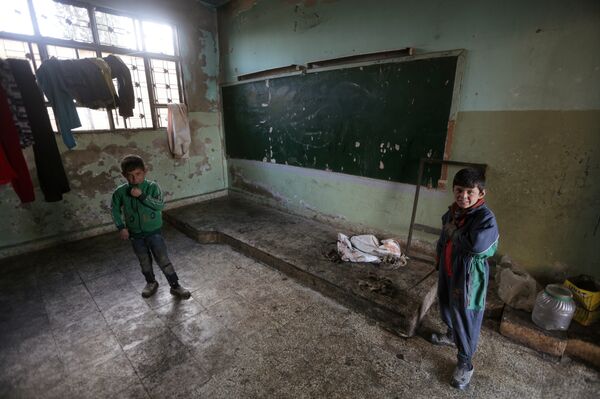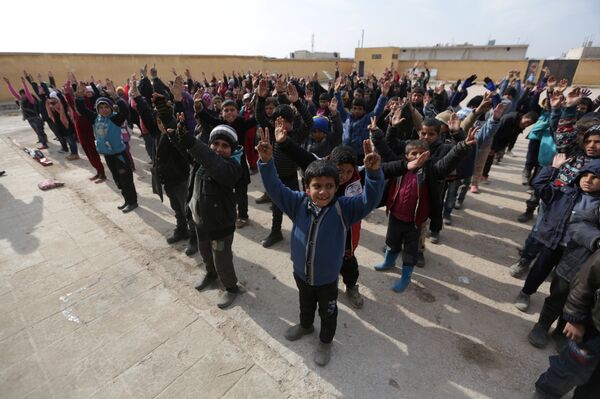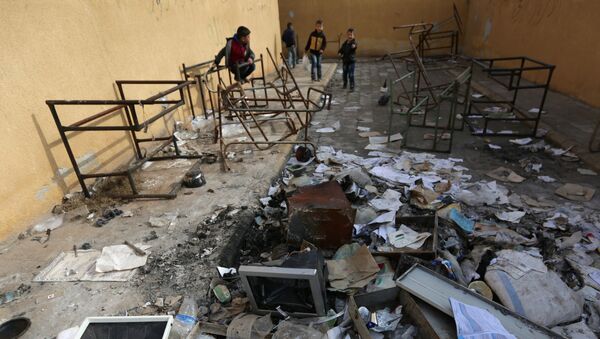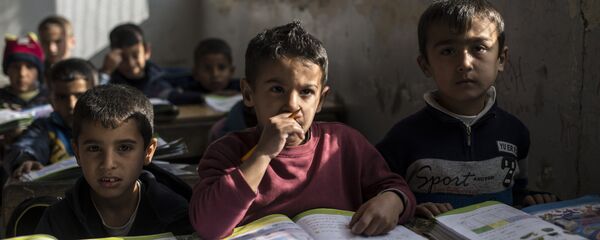Nearly half a million Syrian children are currently enrolled in schools across Turkey. However, one of the top refugee hosting countries in the world, is currently short of resources to give education to all refugee youngsters.
Radio Sputnik discussed the issue with Najwa Mekki, UNICEF's Communication Specialist, who explained how that number has been evaluated.
"We look at the number of Syrian children who are not going to school both inside Syria, it is a little over 2 million, and then in the rest of the countries where Syrian children live as refugees. Where they have been forced to go because of the war in Syria, have been forced to become refugees," she told Sputnik.
Najwa Mekki further specified that this includes countries like Lebanon, Jordan, Turkey, Iraq and Egypt.
"We are really concerned about the situation of these children. There is definitely a lot of effort by UNICEF, by other international organizations, by government partners, by civil society organizations and non-governmental organizations. There is a lot of work being done to make sure that those children continue their education but yet that is not enough," she acknowledged.
It is not enough because of the conflict, because of the lack of resources, she elaborated/ What they are really concerned about, she said, is that if that number of children don't go to school they are turning into a lost generation:
"What a future of a child who was not able to go to school. What is the future of the country that child belongs to? What the future of the world when you look at the next generation of people being uneducated," she questioned.
For the Syrian refugees who fled to Europe the conditions remain as bad, Najwa Mekki noted.

"Look at the weather conditions at the moment. They are very dire. Our message from the beginning has been to take the best interest of a child when you consider these cases," she said.
It is one thing to look at the laws specific to every country but it is another thing to look at them from the perspective of a child, she said.
"So we do urge all countries who are hosting refugees now and the west as well to keep the best interest of a child in mind, to look at way that we can provide for those children who have been forced out. These are not the people who have chosen voluntarily to leave their country, these are people who have been forced to leave because of the conflict. Their choice would have been to stay home but the conditions have pushed them out," she explained.
"And it is important that we give them the support necessary so that they live in dignity, so that they recover their rights, so that they have a minimum of basic elements, that is all they ask for – education, health, access to services, something that allows them to survive and to survive with dignity," she said.

UNICEF's Communication Specialist however noted that for the first time since the start of the Syrian crisis, there are more Syrian children, who fled to Turkey, attending class than there are out of school.
She said she has recently visited Gaziantep, a city in the western part of Turkey's Southeastern Anatolia Region, some 185 kilometers east of Adana and 97 kilometres north of Aleppo, Syria. And she was very impressed with the work she has seen happening in Turkey to make sure that Syrian children go back to school and that they are better observed within the community.
"There has definitely been a lot of progress: just between June last year and the present there has been an increase of 50 per cent in the number of Syrian refugee children going to school. And this has been a great achievement," she told Sputnik.
But at the same time, she said, there is a significant number of children, 40 per cent of the Syrian refugee children, who are old enough to go to school and yet they are still missing out on their education. And this is where the international community and various welfare organizations need to focus their efforts next, she stated.
Have you heard the news? Sign up to our Telegram channel and we'll keep you up to speed!



